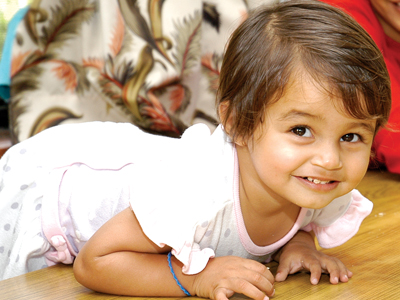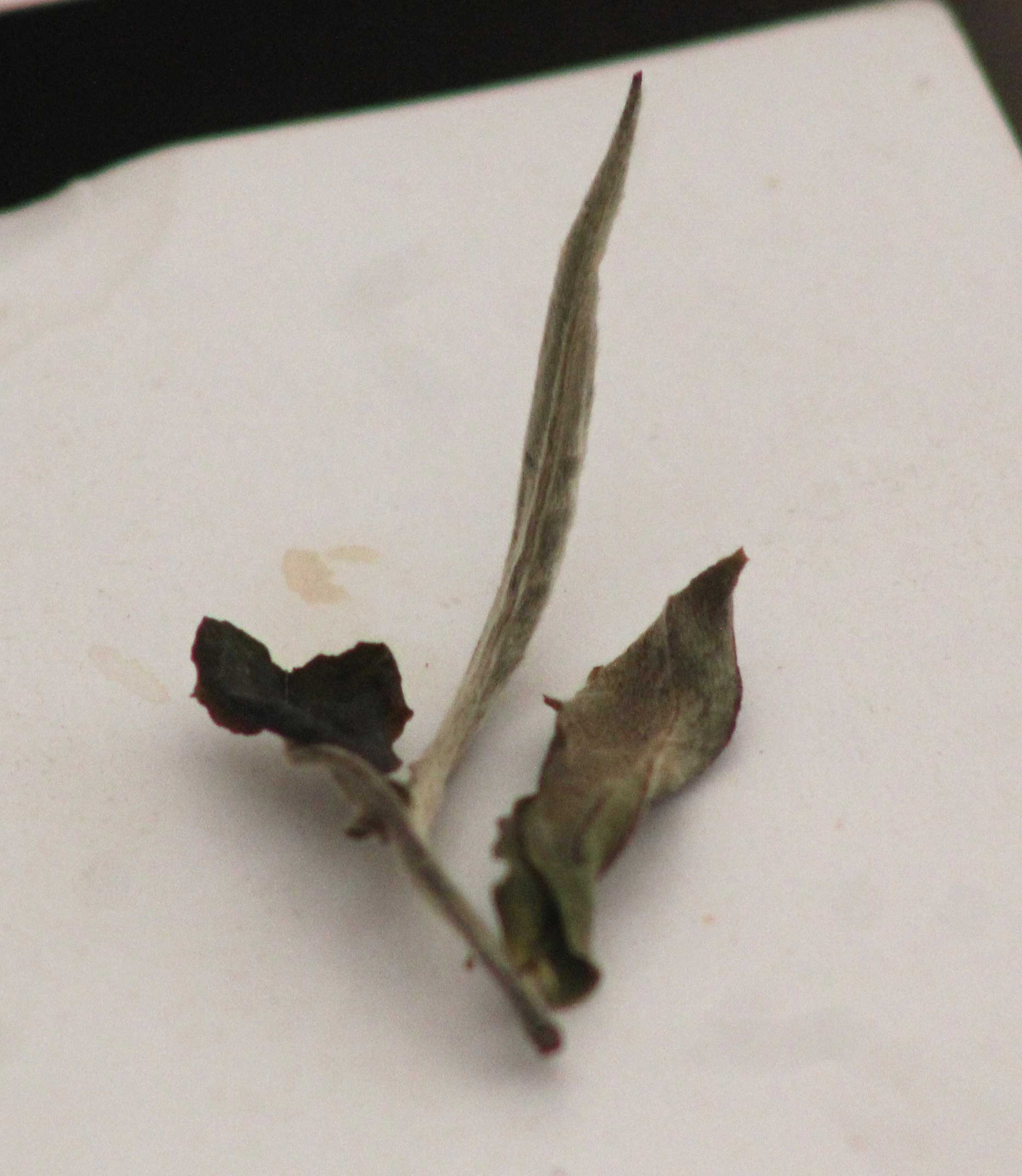At a time when India was tearing apart; neighbor was turning against neighbor; Hindus against Muslims and the two against Sikhs, and the subcontinent witnessing the largest migration ever, a thirty year old Canadian named Elizabeth Macdonald was entering the country. “I came to India as a missionary just when they were trying to burn down the churches. Can’t say it was a very good time to arrive,” says a smiling Mummy Mendies, as she is fondly known to everyone today. She was witness to the most horrifying religious killings and the most chaotic time in India. It was 1947.
 While living in the newly independent India, Elizabeth met a businessman named Thomas Mendies and in 1956, the two decided to get married. The wedding took place on the 25th of February and on the 26th, they boarded a plane from Patna, arriving at the Gauchar Airport in Kathmandu about an hour later. Mummy remembers the airport terminal as a bamboo hut, which housed the immigration office. Another hut built in similar fashion
While living in the newly independent India, Elizabeth met a businessman named Thomas Mendies and in 1956, the two decided to get married. The wedding took place on the 25th of February and on the 26th, they boarded a plane from Patna, arriving at the Gauchar Airport in Kathmandu about an hour later. Mummy remembers the airport terminal as a bamboo hut, which housed the immigration office. Another hut built in similar fashion
served as the Indian Airlines office and every time the DC-10 flew by, it almost blew them away. Thomas was bringing his newly wedded wife to Kathmandu as he had earlier started a hotel in Lazimpat. Known as the Snow View Hotel, it was the first to cater to foreigners. Today the building houses Gallery Nine along with a host of other enterprises.
Asked what she remembers from the 1950’s, Mummy looks back on those early times, almost fifty years ago. “There were few cars and if a jeep drove past, you knew right away who would be behind the wheel. There were no motorcycles or cycles. There was one flight from Patna each day, so not many people were coming to Nepal,” recalls Mummy. She remembers going to the airport to meet the incoming foreigners whom she would then try and bring to the Snow View Hotel. There would be Inger Lissanevitch also on a similar mission representing her husband’s Royal Hotel. One cannot help imagining two tall white ladies standing amidst Nepali officials in their national dress outside a hut at Gauchar Airport receiving tourists arriving in Nepal. Mummy continues, “The Bagmati bridge which allowed only one car at a time had a white line in the middle of the bridge. Whoever got there first had the right of way, while the other car backed all the way to the other side.” She adds, “There was a curfew on when I arrived and it lasted from 9 pm until 4 am the next morning. Anyone going out needed to know the password. A person who did not know the password and caught outside during curfew was locked up until 4 am.”
The Snow View was a pioneering hotel established soon after the kingdom was opened to foreigners. Nepal had remained closed to the outside world and only a lucky few who were invited or those who managed to obtain a permit, made it into this forbidden land. It was a busy life Mummy recalls, meeting all kinds of people who came to the Snow View.
Elizabeth Macdonald was born in Hamilton, Ontario in Canada. In 1947, she caught a ship at New York Harbor and sailed to Bombay (presently Mumbai) in India. During the six-week journey across the vast waters, she celebrated her 30th birthday aboard ship. She then began her life in India at sweltering Calcutta, and was to spend eight years in that country. There she met her future husband and her life changed dramatically the day after they were married, as they flew into the little known country called Nepal. The kingdom in the Himalaya became their home. Over the years, seeing the plight of homeless children, Elizabeth started a home with a vision of helping twelve needy children. Once it was established in 1961, she called it ‘Mendies’ Haven’ and it kept growing, accommodating more and more destitute children. She had a vision that God would send her children who needed to be looked after and she lived on faith. Initially the children’s home was located in front of St. Xavier’s School in Jawalakhel. The haven got started when she picked up a child from a temple and cared for him. “He now has four children of his own,” remarks Mummy.
“We don’t go out looking for children. We leave it to God and people who are in need come to us of their own accord,” says Mummy. Every child has a story according to her. She remembers the first group of three children whom she brought to the home. Their father was a cook at the German Ambassador’s residence. His wife left him and he in turn ruined his health with strong alcoholic drinks. With no other option left to them, the children decided to fend for themselves and walked up to the Patan Durbar Square. Coincidentally, they met their mother there, who told them to sit tight and wait for her return. It was the cold month of February and they sat outside and waited for three days. Their mother never returned. Eventually the police took them over to the Police Station and not knowing what to do with them, the well- intentioned officers sent them to Mendies’ Haven. The children were destined for a better life as the police had made the right decision. With the care and education that they received, one is now in Australia, one in England and the third working in Nepal.
The haven has moved several times and was once located at Dhobighat where it remained for about twenty-five years. It was there that they celebrated their 25th Anniversary. Then thirteen years ago, Mummy moved her children’s home to Dhapakhel where it remains to this day. The photographer and I drove up past the Gems School and when we reached the top of the second hill, we found the haven. Mummy had told us in her distinct and clear voice over the phone, “Come past the Ring Road, turn right at the first bus stop, drive up the hill and we are right on top of the second hill behind the post office.” Finding it was easy enough and Mummy was waiting for us, and remarked with a smile, “Usually journalists are late, you people are early. Sometimes if you tell them three, it’s four O’clock by the time they show up.”
Mendies’ Haven comprises three large buildings kept immaculately clean. As we were walking in, two girls were leaving. Later we were told they were some of the girls who grew up in the home and were now living on their own. They had come on a visit as many of the children do. The building near the gate houses the boys while the girls live in the other two. In one of these buildings, Mummy lives with her helpers. The dormitory we saw was spick and span way beyond our expectations and each bed had a teddy bear lying on top of the pink bed-sheet. The rooms are airy and superbly lit by natural daylight besides being spotlessly clean. As we were talking to Mummy, a busload of children arrived from school in Jawalakhel. We quickly went out to meet them. They went in to their rooms and were soon back for tea after changing. In the spacious dining room where they were served tea and apples, the children were friendly and playful. They seemed to care for the little one who is only two years old. She was not shy of being photographed.
We were guided through the compound by Mummy’s right-hand man, Kamal Thapa. He has been with the organization since 1979 and remembers the 25th anniversary fondly. He joined as a teenager and is today one of the main people running the organization. He informs us, “There are twenty-eight children with us today, and five people running the place. The kids go to study in the Nirmal School and are usually back by 4:00 pm.” We accompanied him to the dinning room where the children were arriving for tea. They seemed happy to have visitors. Behind the buildings, Thapa showed us the playground where the children play after school. Mummy remembers how she lived in a tent while the building was under construction. “It used to be a corn field,” she tells us.
Back in the main building, munching delicious cookies and drinking coffee, we sat beside Mummy listening to her stories. She lucidly recalls children who came here in distress, grew up, got their education, got married and moved on. But most importantly; here they got love. She talks of Arjun who was born in a small village in Trishuli. He lost both his parents when he was only four. He then went to live with his uncle who did not treat him well, until one day he had the courage to run away. Dressed in rags, he slept where he could and ate what he could find. He was lucky to be found by an Australian doctor who contacted Mummy, knowing that she cared for abandoned children. The good doctor brought the kid to her saying he was very aloof. But when Arjun met Mummy, he was immediately accepting and became attached, which made her remark, “All he needs is love.” The kid grew up and won a scholarship to become an auto mechanic in California. “He came back to Nepal, became a father of three sons and is now working with a youth program here,” informs Mummy with a deep sense of satisfaction. We learn from her that today many of the children reside in Germany, England, the US and Canada. One cannot help wonder what those children would have been doing today, had they not come to Mendies’ Haven.
Fifteen years ago, Mummy’s husband, Tom passed away and Charles, her son along with his wife Susan helped her run Mendies’ Haven. Today, the couple lives in Delhi where they moved thirteen years ago. The younger son, Thomas lives in Canada with his family.
Over the years, Mummy has lost count how many children have come to stay, grown up and moved on. “But they always come back to visit. We have big reunions on my birthday, Mother’s Day and Christmas. Sometimes there are a hundred, sometimes a hundred and twenty-five. You never know how many are coming home to visit,” says Mummy. All the love she gave through the years flows back to her from all directions. What more could she ask of them?
Coffee Cascara Extra income for coffee farmers
In March 2021, I had the chance to taste a different kind of muffin. Made by Makoo Bakery...










